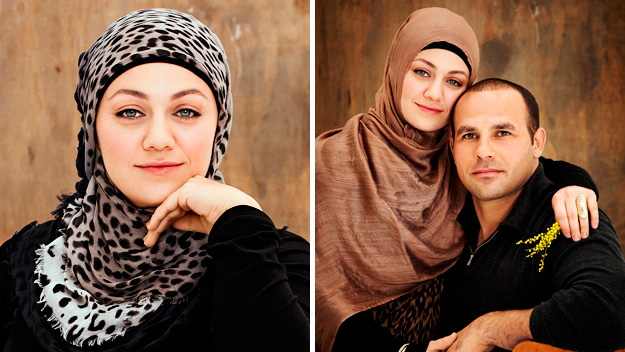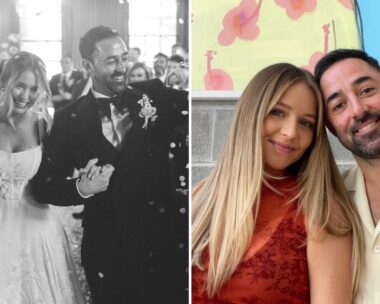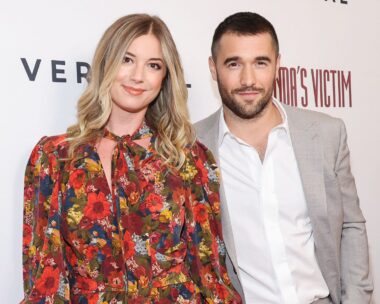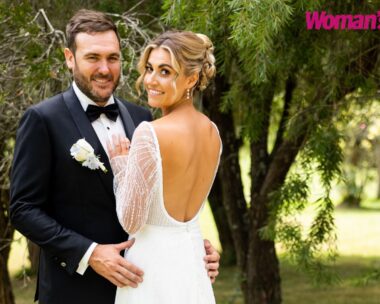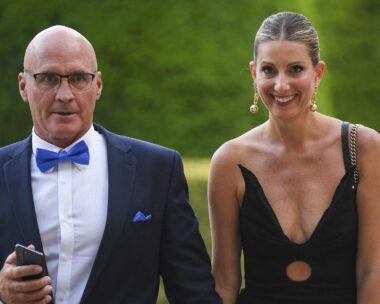When young Arwa imagined the man she would spend her life with, a rugby league player was not top of her thoughts, she tells Michael Sheather. Then she met Hazem.
Love sometimes appears in the most unexpected places. For Arwa El Masri, wife of rugby league star Hazem El Masri, it arrived with a jolt the moment she looked into her future husband’s eyes.
“I have always believed in love at first sight, but I never thought it would happen to me,” says Arwa. “But that’s what it was like. I knew the very first time our eyes met that he was the one, the person that my soul fitted to. It was such a supernatural feeling.
“And to have that certainty consume you is a little frightening, but also very beautiful. It was something so powerful that I couldn’t resist it, even though I tried.”
Related: Our women of the veil
Meeting and falling in love with Hazem in 1997, when he was a rising football star with the NSW Canterbury Bulldogs rugby league team, is an integral part of Arwa’s life, now the subject of a deeply personal memoir, Tea With Arwa.
The youngest of three daughters in a Palestinian family dislocated by the Israeli occupation of their homeland, Arwa came to Australia in 1985 seeking a new life and a new home.
More than a decade later, she found both and a sense of completion when she met Hazem, a migrant from Lebanon.
“In Hazem, I found my home,” she says. “And it was thanks to my new country that I found my soul mate.
So meeting Hazem is bound up with the ideas and emotions of a new beginning and a new sense of belonging, both for me and for him.”
However, Tea With Arwa is much more than a love story. It is also the story of a young woman’s faith.
Arwa, 34, tells of her feelings about being a Muslim woman adapting to life in a Western culture and about how, at 23, she decided to follow her deeply held spiritual beliefs and wear the veil.
“Taking the veil is a very personal decision,” says Arwa. “Not all Muslim women wear one and that is their choice. But I chose to wear it because it was right for me as a sign of my respect for Islam and for myself.”
Wearing the veil or hijab, says Arwa, is an expression of modesty meant to shield a woman from unwanted sexual advances.
“It is a representation of a woman’s right not to be seen as a sexual being only and a refusal to be judged on physical attributes alone,” says Arwa. “For me, it is as much a feminist statement as a religious one.”
She says that taking the veil changed the way many people viewed her. “It didn’t change the people who know me, but people in the street looked at me differently,” she says.
“And, when they spoke to me, it was delayed, simple English, as though they assumed I couldn’t understand and had just arrived from overseas.
“I never let those moments deter me. I’m still the same person, with the same morals, respect for others and respect for myself.
Related: Court case reignites burqa ban debate
“I wrote this book in the hope people would read my story and realise we are not so very different, that we all share a common humanity,” says Arwa, who weaves her story with her family’s favourite Middle Eastern recipes.
“Regardless of our religion, we are all looking for the same things: family, love and belonging. Those are all feelings we share.”
Tea With Arwa: One Woman’s Story of Faith, Family and Finding a Home In Australia by Arwa El Masri, is published by Hachette Australia, $35.
Read more of this story in the September issue of The Australian Women’s Weekly.
Your say: Were you surprised to read Arwa finds wearing a veil so empowering?

Video: Breaking all boundaries
